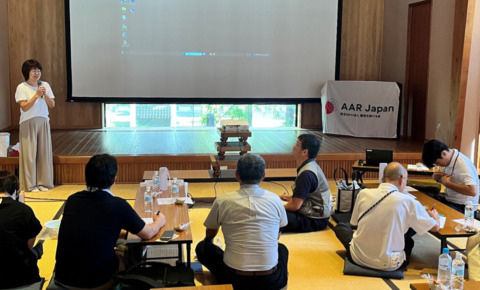
“Supporting People Who Support Others” Workshop Held in Noto
- #Disaster Relief
- #Japan
06/11/2025
AAR Japan began providing emergency relief in Japan after the
Great Hanshin-Awaji Earthquake in 1995 and has been
assisting victims of natural disasters ever since.
In the aftermath of the Great East Japan Earthquake that struck on March 11th, 2011,
we provided immediate emergency support and have been
working for more than 10 years since then.
Area
378,000 square kilometers
Population
Approximately 123 million
Capital
Tokyo
Ethnicity
Japanese
Language
Japanese
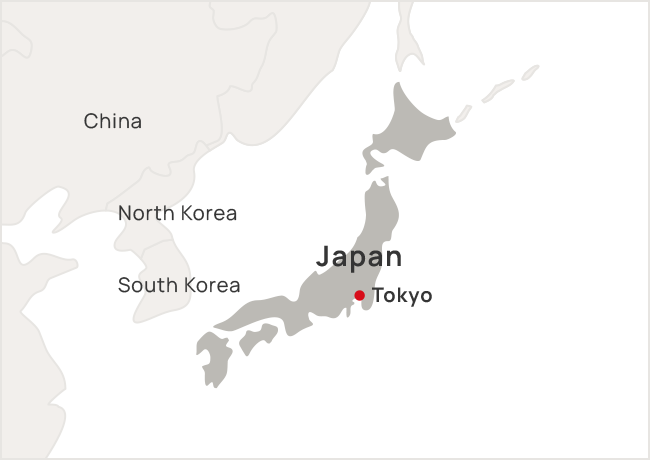
Major natural disasters such as earthquakes and typhoons occur annually in Japan, and we provide immediate emergency relief following these disasters. We are committed to ensuring that the most vulnerable groups in society, such as persons with disablities, the elderly, and children, are not left behind. Additionally, we offer support programs for refugees who have fled to Japan due to conflict and political instability in their home countries.
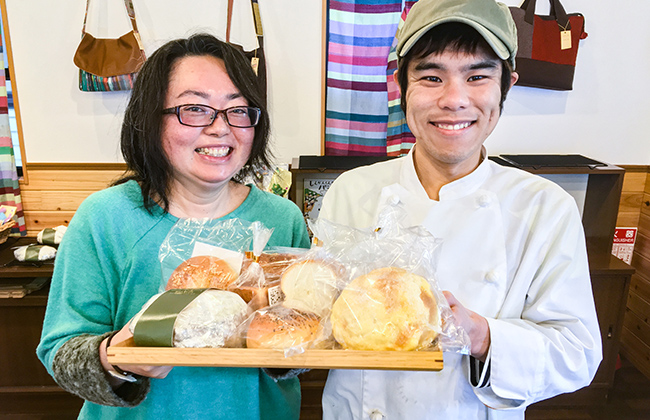
“The tsunami washed away a workshop for people with disabilities.”
Atsuko Takeshita (Director of a welfare facility for the disabled)
Our region, located in the coastal area of northern Iwate Prefecture, was devastated by the Great East Japan Earthquake in 2011. On that day, we happened to be closing our fish processing plant early, so all the disabled people working there were safe, but the tsunami washed away our workshop. Just when I was feeling overwhelmed with anxiety, AAR offered to help us rebuild, and I could see the future.
We provided prompt emergency assistance when earthquakes and typhoons struck.
We will continue to provide reconstruction support tailored to the evolving needs
of the victims as time goes by.

Distribution of emergency relief supplies to a nursery school damaged by Typhoon No. 19 in 2019 (Soma City, Fukushima Prefecture)
Immediately after a disaster strike, we assess the needs in the affected areas, deliver emergency relief supplies, and set up soup kitchens at evacuation centers. We also distribute urgently needed supplies to welfare facilities for the disabled, particularly those hard to reach, and repair damaged facilities.
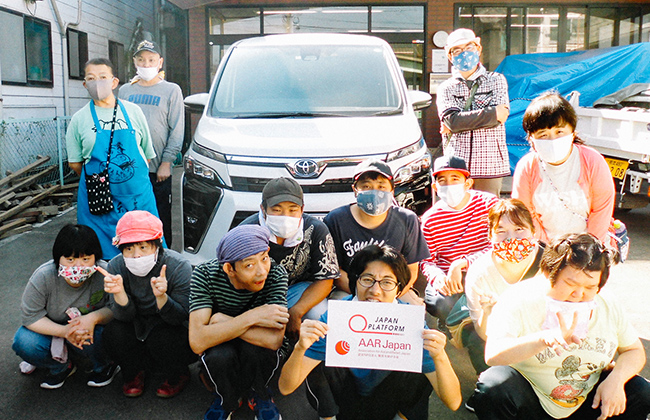
Providing vehicles for transporting users to welfare facilities damaged by the torrential rains in Kyushu (July 2020) (Hitoyoshi City, Kumamoto Prefecture)
We support the recovery and reconstruction of welfare facilities for the disabled affected by the disaster by rebuilding the facilities and expanding the production facilities of employment support facilities. We are also providing support tailored to the needs of disaster victims, which have changed over time since the disaster, such as distributing daily necessities to evacuees living in temporary housing and activities to promote community reconstruction.
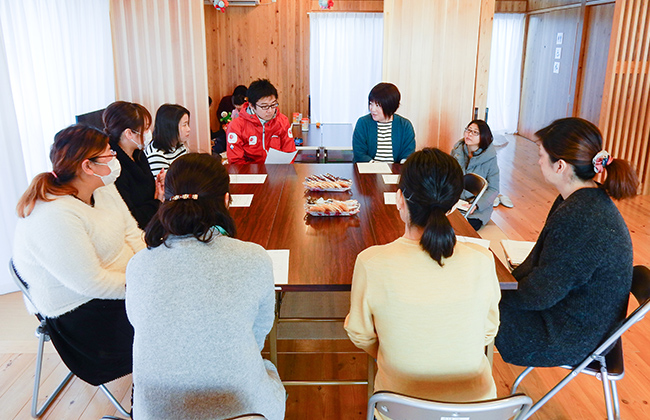
Conducting an interview survey with people involved in welfare councils (Fukushima Prefecture)
We are working with organizations of people with disabilities and other related organizations to prepare for disaster risk and mitigate disaster risk. By creating guidelines, presentations at disaster prevention seminars, and the creation of regional networks in cooperation with social welfare councils, we are working toward disaster prevention so that no one, including people with disabilities, is left behind.
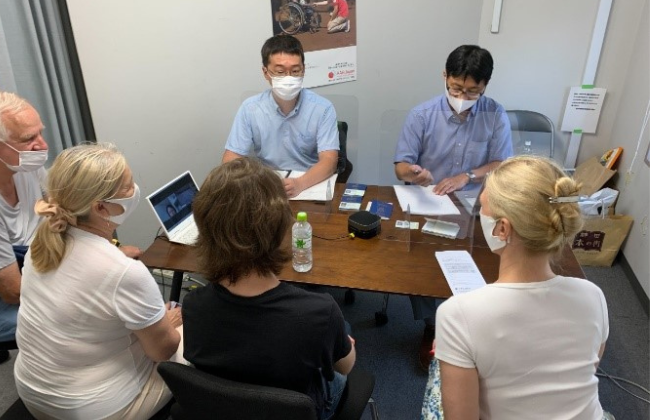
Interview with evacuees from Ukraine.
AAR Japan provides a “Livelihood Counseling Program" for refugees and displaced persons in Japan due to conflict or political instability in their countries. The program offers a wide range of support to solve problems such as consultation on daily life, concerns, school enrollment, and employment. Moreover, AAR Japan refers to specialized agencies depending on clients' problems. The program is implemented jointly with our sister organization, Social Welfare Corporation Support 21.
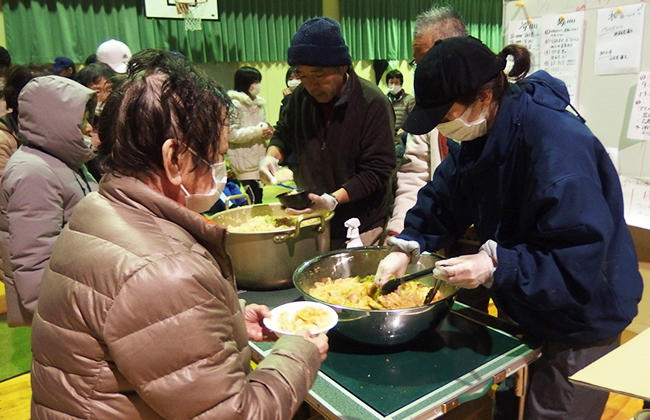
Survivors lined up at a soup kitchen
AAR dispatched an emergency support team to Ishikawa Prefecture, where the earthquake caused extensive damage. We provided assistance to evacuation centers, hygiene products, and other supplies to welfare facilities for persons with disabilities, and support for foreign residents of the affected area.
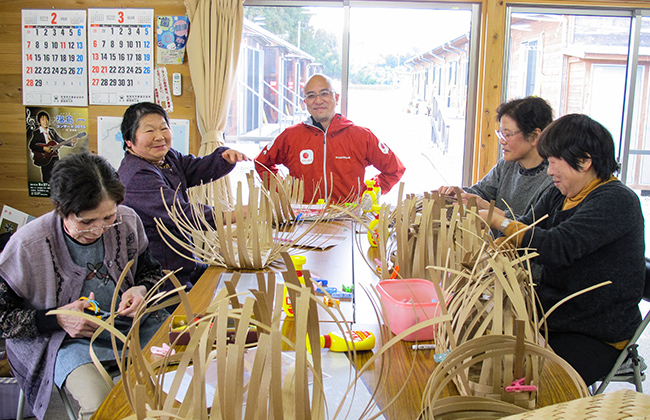
Community exchange activities to prevent the isolation of disaster victims
We dispatched emergency teams to Iwate, Miyagi, and Fukushima prefectures, where the earthquake and tsunami caused unprecedented damage, to serve food and distribute emergency relief supplies. Since then, we have continued to support the reconstruction of welfare facilities, product development support, provision of materials, rehabilitation, and counseling. At present, we continue to provide long-term support, including support for welfare facilities, exchange activities to prevent the isolation of older people who have moved to public housing for reconstruction, and events for parents and children in Fukushima Prefecture.
2018 - 2020
Support for victims
of the torrential rains
in western Japan
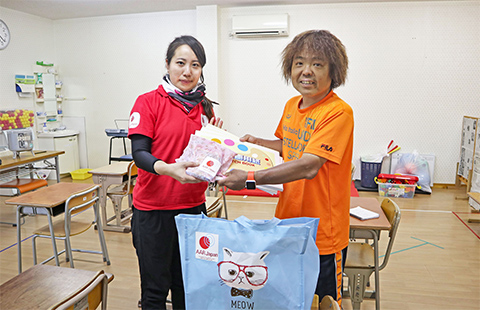
In the devastated areas of Okayama, Hiroshima, and Ehime Prefectures, we served food, repaired welfare facilities, and provided equipment and materials.
2016 - 2019
Support for Kumamoto Earthquake victims
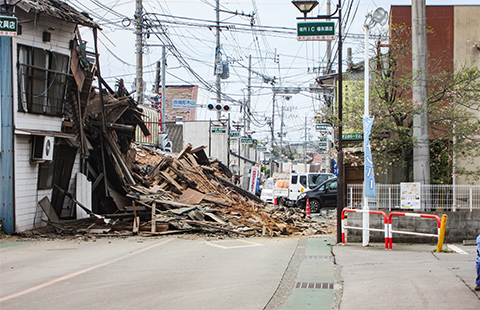
In the areas affected by the Kumamoto earthquake, where two magnitude seven earthquakes occurred, more than 180,000 people were evacuated, we served meals, distributed daily necessities, and provided support to workshops and temporary housing for the disabled.
1995 - 1996
Support for victims of the
Great Hanshin-Awaji
Earthquake
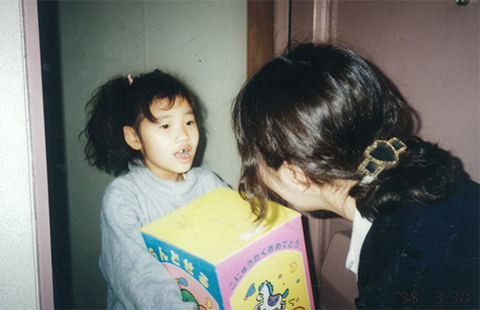
We distributed blankets, medical supplies, food, disposable diapers, and other items to the areas affected by the Great Hanshin-Awaji Earthquake, which killed over 6,400 people and damaged approximately 640,000 homes. We also built accommodations for disaster volunteers.

06/11/2025
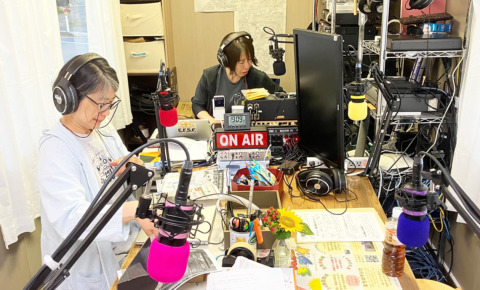
14/07/2025
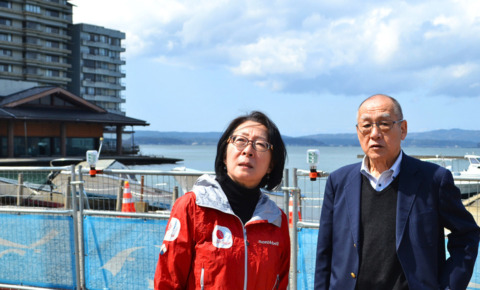
23/06/2025

04/03/2025